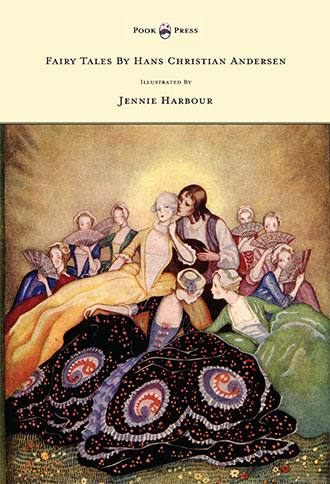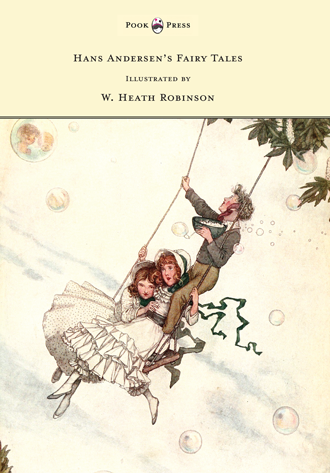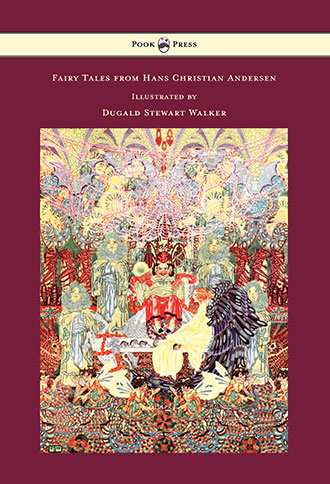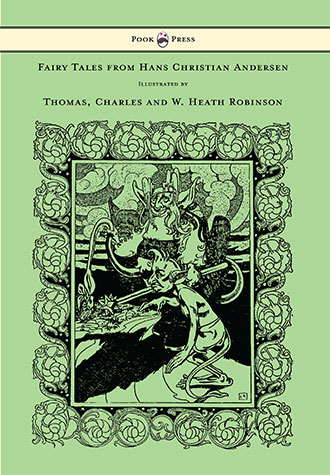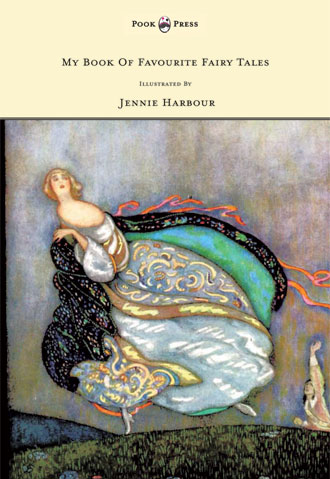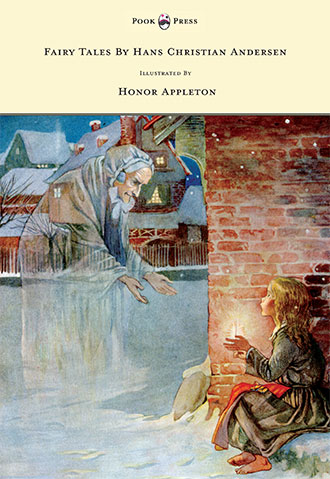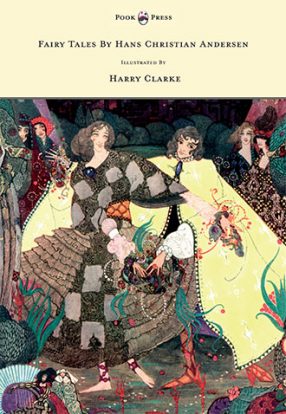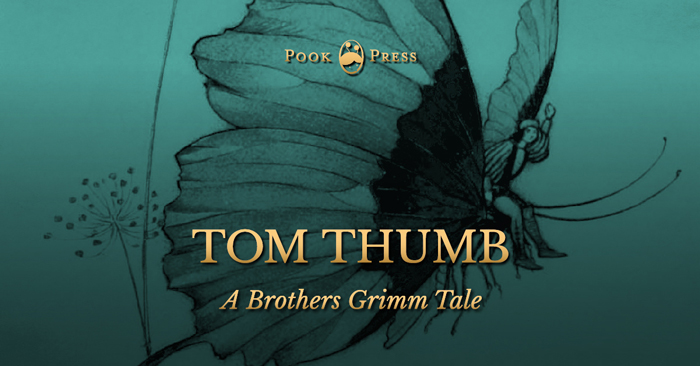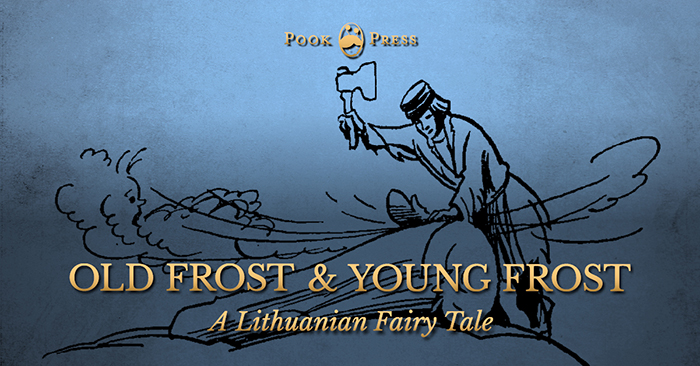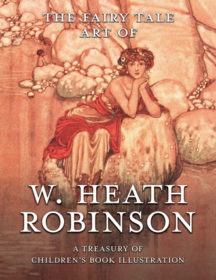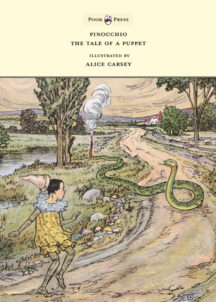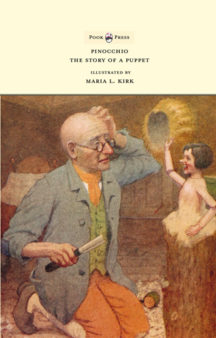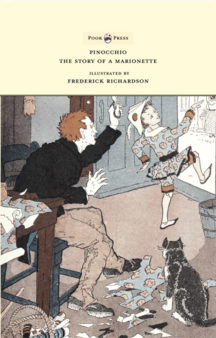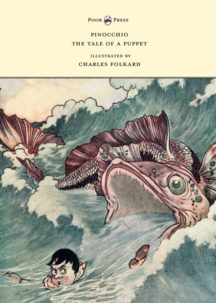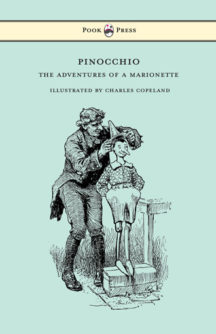The Four Winds and The Garden of Paradise – A Hans Christian Andersen Tale
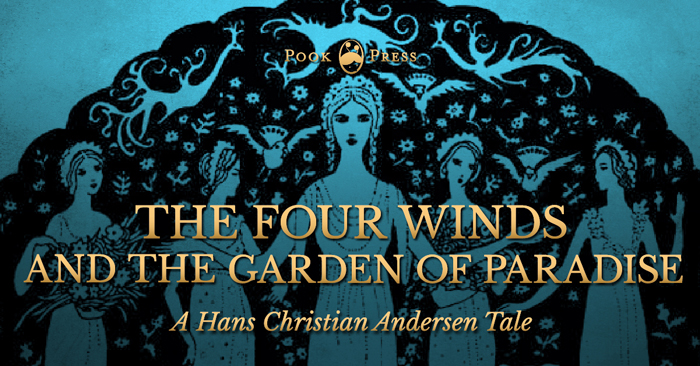
The mother of the winds, a journey to the Garden of Eden, and a forbidden kiss under the Tree of Knowledge.
The Four Winds and The Garden of Paradise
– A Hans Christian Andersen Tale –
THERE was once the son of a king who had more beautiful books than any one ever had before. He could read about everything which had ever happened in this world, and see it all most beautifully pictured. He could get information about every nation and every country; but as to where the Garden of Paradise was to be found, not a word could he discover, and this was the very thing he thought most about. His grandmother had told him when he was quite a little boy that every flower in the Garden of Paradise was a delicious cake. In one flower history was written, in another geography or tables, you had only to eat the cake and you knew the lesson. But as he grew older and wiser and learnt more, he easily perceived that the delights of the Garden of Paradise must be far beyond all this.
“Oh, why did Eve take of the tree of knowledge!” thought he to himself. “Why did Adam eat the forbidden fruit! If it had only been I it would not have happened! never would sin have entered the world!”
He walked into the wood one day. Evening came on, and it rained as if the whole heaven had become a sluice from which the water poured down. He had to climb over huge stones where the water oozed out of the thick moss. He was almost fainting; just then he saw in front of him a big, lighted cave. A fire was burning in the middle; a splendid stag with its huge antlers was stuck on a spit, being slowly turned round between the hewn trunks of two fir trees. An elderly woman, tall and strong enough to be a man dressed up, sat by the fire throwing on logs.
“Come in!” she said; “sit down by the fire so that your clothes may dry!”
“There is a great draught here,” said the Prince, as he sat down.
“It will be worse than this when my sons come home!” said the woman. “You are in the cavern of the winds; my sons are the four winds of heaven, and here we have one of them.”
It was the Northwind who came in with an icy blast, great hailstones fell about the floor and snow-flakes drifted in.
“I come from the Arctic seas,” he said. “I have been on Behring Island with the Russian walrus-hunters. It’s perfectly splendid! there you have a floor to dance upon, as flat as a pancake, half-thawed snow, with moss; there were bones of whales and Polar bears lying about, they looked like the legs and arms of giants covered with green mould. One would think that the sun had never shone on them.
“But here we have my brother from the west; I like him best of all, he smells of the sea and brings a splendid cool breeze with him!”
“Is that the little Zephyr?” asked the Prince.
“Yes, certainly it is Zephyr, but he is not so little as all that. He used to be a pretty boy once, but that’s gone by!”
He looked like a wild man of the woods, but he had a padded hat on so as not to come to any harm. He carried a mahogany club cut in the American mahogany forests.
“Where do you come from?” asked his mother.
“From the wild forests!” he said, “where the thorny creepers make a fence between trees, where the water-snake lies in the wet grass and where human beings seem to be superfluous!
“I have been turning somersets in the Savannahs, patting the wild horse, and shaking down cocoa-nuts! Oh, yes, I have plenty of stories to tell! But one need not tell everything. You know that very well, old woman!” and then he kissed his mother so heartily that she nearly fell backwards; he was indeed a wild boy.
The Southwind appeared now in a turban and a flowing Bedouin’s cloak.
“I have been chasing the lion with the Hottentots in Kaffirland!” he said. “What grass there is on those plains! as green as an olive. The gnu was dancing about, and the ostriches ran races with me, but I am still the fastest. I went to the desert with its yellow sand. It looks like the bottom of the sea. Then I burrowed into the fine loose sand and whirled it up in great columns—that was a dance!”
“Your sons are lively fellows!” said the Prince to the old woman.
“Yes, indeed,” she said. “Here comes the fourth.”
It was the Eastwind, and he was dressed like a Chinaman.
“Oh, have you come from that quarter?” said the mother. “I thought you had been in the Garden of Paradise.”
“I am only going there to-morrow!” said the Eastwind. “It will be a hundred years to-morrow since I have been there. I have just come from China, where I danced round the porcelain tower till all the bells jingled.”
“You are in the cavern of the winds; my sons are the four winds of heaven, and here we have one of them.”
“You’re quite uproarious about it!” remarked the old woman. “It’s a good thing you are going to the Garden of Paradise to-morrow; it always has a good effect on your behaviour. Mind you drink deep of the well of wisdom, and bring a little bottleful home to me.”
“And now let us have something to eat!” said the mother of the winds; and they all sat down to feast upon the roast stag, and the Prince sat by the side of the Eastwind, so they soon became good friends.
“I say,” said the Prince, “just tell me where is the Garden of Paradise?”
“Oh ho!” said the Eastwind, “if that is where you want to go you must fly with me to-morrow. But I may as well tell you that no human being has been there since Adam and Eve’s time. You know all about them I suppose from your Bible stories?”
“Of course,” said the Prince.
“When they were driven away the Garden of Eden sank into the ground, but it kept its warm sunshine, its mild air, and all its charms. The queen of the fairies lives there. Get on my back to-morrow and I will take you with me; I think I can manage it! But you mustn’t talk now, I want to go to sleep.”
When the Prince woke up in the early morning, he was not a little astonished to find that he was already high above the clouds. He was sitting on the back of the Eastwind, who was holding him carefully; they were so high up that woods and fields, rivers and lakes, looked like a huge coloured map.
“Good morning,” said the Eastwind. “You may as well sleep a little longer, for there is not much to be seen in this flat country below us, unless you want to count the churches.”
“It was very rude of me to leave without saying good-bye to your mother and brothers,” said the Prince.
“One is excused when one is asleep!” said the Eastwind, and they flew on faster than ever. You could mark their flight by the rustling of the trees as they passed over the woods; and whenever they crossed a lake, or the sea, the waves rose and the great ships dipped low down in the water, like floating swans. Towards evening the large towns were amusing as it grew dark, with all their lights twinkling now here, now there, just as when one burns a piece of paper and sees all the little sparks like children running home from school.
The eagle in the great forest flew swiftly, but the Eastwind flew more swiftly still. The Kossack on his little horse sped fast over the plains, but the Prince sped faster still.
“Now you can see the Himalayas!” said the Eastwind. “They are the highest mountains in Asia; we shall soon reach the Garden of Paradise.”
They took a more southerly direction, and the air grew fragrant with spices and flowers. Figs and pomegranates grew wild, and the wild vines were covered with blue and green grapes. They both descended here and stretched themselves on the soft grass, where the flowers nodded to the wind, as much as to say, “Welcome back.”
“Are we in the Garden of Paradise now?” asked the Prince.
“No, certainly not!” answered the Eastwind. “But we shall soon be there. Do you see that wall of rock and the great cavern where the wild vine hangs like a big curtain? We have to go through there! Wrap yourself up in your cloak, the sun is burning here, but a step further on it is icy cold.”
“So that is the way to the Garden of Paradise!” said the Prince.
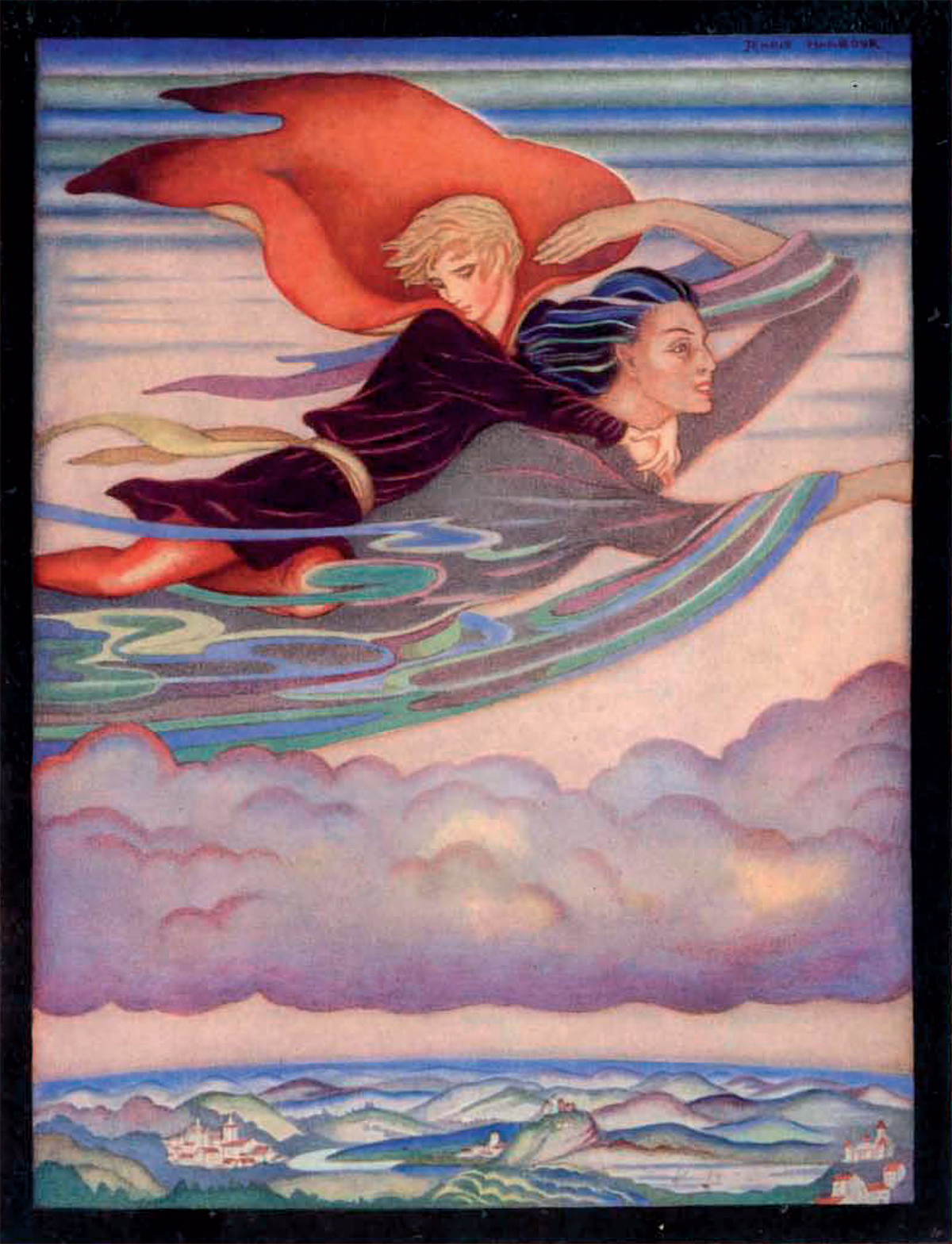
Illustration by Jennie Harbour
Now they entered the cavern. Oh, how icily cold it was, but it did not last long. The Eastwind spread his wings, and they shone like the brightest flame; but what a cave it was! Large blocks of stone, from which the water dripped, hung over them in the most extraordinary shapes; at one moment it was so low and narrow that they had to crawl on hands and knees, the next it was as wide and lofty as if they were in the open air.
The Eastwind pointed before them where a beautiful blue light was shining. The blocks of stone above them grew dimmer and dimmer, and at last they became as transparent as a white cloud in the moonshine. The air was also deliciously soft, as fresh as on the mountain tops and as scented as down among the roses in the valley.
A river ran there as clear as the air itself, and the fish in it were like gold and silver. A firm bridge of marble as delicately and skilfully carved as if it were lace and glass beads led over the water to the Island of Bliss, where the Garden of Paradise bloomed.
The Eastwind took the Prince in his arms and bore him over. The flowers and leaves there sang all the beautiful old songs of his childhood, but sang them more wonderfully than any human voice could sing them.
Were these palm trees or giant water plants growing here? The Prince had never seen such rich and mighty trees.
Close by on the grass stood a flock of peacocks with their brilliant tails outspread. Yes, indeed, it seemed so, but when the Prince touched them he saw that they were not birds but plants. They were big dock leaves, which shone like peacocks’ tails. Lions and tigers sprang like agile cats among the green hedges, which were scented with the blossom of the olive, and the lion and the tiger were tame. The wild dove, glistening like a pearl, beat the lion’s mane with his wings; and the antelope, otherwise so shy, stood by nodding, just as if he wanted to join the game.
The Fairy of the Garden now advanced to meet them. She was young and very beautiful, and was surrounded by a band of lovely girls each with a gleaming star in her hair.
The Fairy smiled and led him into a large, lofty room, the walls of which were like transparent paintings of faces, one more beautiful than the other. These were millions of the Blessed who smiled and sang, and all their songs melted into one perfect melody. In the middle of the room stood a large tree, with handsome drooping branches; golden apples, large and small, hung like oranges among its green leaves. It was the Tree of Knowledge, of whose fruit Adam and Eve had eaten.
“Now let us get into the boat,” said the Fairy. “We shall find refreshment on the swelling waters. The boat rocks, but it does not move from the spot, all the countries of the world will pass before our eyes.”
It was a wonderful sight to see the whole coast move. Here came lofty snow-clad Alps, with their clouds and dark fir trees. Then banian trees bent their long, drooping branches over the boat, black swans floated on the water, and the strangest animals and flowers appeared on the shore. This was New Holland, the fifth portion of the world, which glided past them with a view of its blue mountains. They heard the chant of priests, and saw the dances of the savages to the sound of drums and pipes of bone. The pyramids of Egypt reaching to the clouds, with fallen columns, and Sphynxes half buried in sand, next sailed past them. Then came the Aurora Borealis blazing over the peaks of the north; they were fireworks which could not be imitated. The Prince was so delighted, and he saw a hundred times more than we have described.
“Can I stay here always?” he asked.
“That rests with yourself,” answered the Fairy. “If you do not, like Adam, allow yourself to be tempted to do what is forbidden, you can stay here always.”
“I will not touch the apples on the Tree of Knowledge,” said the Prince. “There are thousands of other fruits here equally beautiful.”
“Test yourself, and if you are not strong enough, go back with the Eastwind who brought you. He is leaving here now, and will not come back for a hundred years; the time will fly in this place like a hundred hours, but that is a long time for temptation and sin. Every evening when I leave you I must say ‘Come with me,’ and I must beckon to you, but stay behind. Do not come with me, for with every step you take your longing will grow stronger. You will reach the hall where grows the Tree of Knowledge; I sleep beneath its fragrant drooping branches. You will bend over me and I must smile, but if you press a kiss upon my lips Paradise will sink deep down into the earth, and it will be lost to you. The sharp winds of the wilderness will whistle round you, the cold rain will bedraggle your hair. Sorrow and labour will be your lot.”
“I will remain here!” said the Prince.
So the Eastwind embraced him, kissing him, and saying “Be strong, then in a hundred years we shall meet again.” “Farewell! Farewell!” and spreading his wide wings which gleamed like crimson poppies in a harvest field, or like the blazing Northern Lights of wonder, he sped away.
And the flowers whispered “good-bye” and pelicans and storks flew around him as far as the boundary of the garden.
“Now we begin our dancing!” said the Fairy; “at the end when I dance with you, as the sun descends you will see me beckon to you and cry ‘Come with me;’ but do not come. I have to repeat it each night for a hundred years. Every time you resist, you will become stronger, and at last you will not even think of following. To-night is the first time. Remember my warning!”
And the Fairy led him into a large hall of white transparent lilies, the yellow stamens in each formed a little golden harp which echoed the sound of strings and flutes. Lovely girls, slender and lissom, clad in floating gauze which revealed their shapely limbs, glided in the dance, and sang of the joy of living—that they would never die—and that the Garden of Paradise would blossom for ever.
You will reach the hall where grows the Tree of Knowledge; I sleep beneath its fragrant drooping branches. You will bend over me and I must smile, but if you press a kiss upon my lips Paradise will sink deep down into the earth, and it will be lost to you…”
Then the Fairy beckoned to him and said so sweetly, “Come with me,” that he rushed towards her, forgetting his resolve, forgetting everything on the very first evening that she smiled and beckoned to him.
The fragrance in the scented air around grew stronger, the harps sounded more melodiously than ever, and it seemed as if the millions of smiling heads in the hall where the Tree grew, nodded and sang, “One must know everything. Man is lord of the earth.”
“Come with me, come with me,” spoke those trembling tones, and at every step the Prince’s cheeks burnt hotter and hotter and his blood coursed more rapidly.
“I must go,” he said, “it is no sin, I must see her asleep, nothing will be lost if I do not kiss her, and that I will not do. My will is strong.”
The Fairy drew back the branches and a moment after was hidden within their depths.
“I have not sinned yet!” said the Prince, “nor will I,” then he drew back the boughs. There she lay asleep already, beautiful as only the Fairy in the Garden of Paradise can be. She smiled in her dreams; he bent over her and saw the tears welling up under her eyelashes.
“Do you weep for me?” he whispered. “Weep not, beautiful maiden. If it were to be everlasting night to me, a moment like this were worth it!” and he kissed away the tears from her eyes; his mouth touched hers.
Then came a sound like thunder, louder and more terrible than any he had ever heard before, and everything around collapsed. The lovely Fairy, the flowery Paradise sank deeper and deeper. The Prince saw it disappear into the darkness of night; it shone far off like a little tiny twinkling star.
The cold rain fell on his face, and the sharp wind blew around his head, and at last his memory came back. “What have I done?” he sighed. “I have sinned like Adam, sinned so heavily that Paradise has sunk low beneath the earth!” And he opened his eyes; he could still see the star, the far away star, which twinkled like Paradise; it was the morning star in the sky. He got up and found himself in the wood near the cave of the winds, and the mother of the winds sat by his side. She looked angry and raised her hand.
“So soon as the first evening!” she said. “I thought as much; if you were my son, you should go into the bag which I keep for my boys when they are unruly!”
This story was taken from the book:
Hans Andersen’s Stories – Illustrated by Jennie Harbour
Other Pook Press books you might like:
More from the Pook Press Blog:

